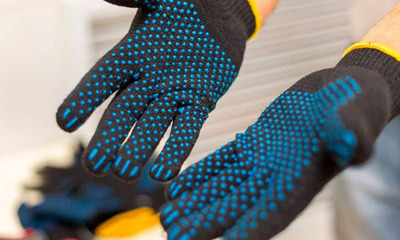Difference between wire-cut resistant gloves and steel ring cut-resistant gloves
Published Time:
2025-03-18
The main difference between steel wire cut-resistant gloves and steel ring cut-resistant gloves lies in their different materials and structures.
The main difference between wire-cut resistant gloves and steel ring cut-resistant gloves lies in their material and structure.
Material and Structure
Wire-cut resistant gloves: Primarily made of small stainless steel rings interconnected. These rings are connected by weaving or welding to form the glove structure.
Steel ring cut-resistant gloves: Typically made of thousands of independently welded steel rings. The welds between the rings are more substantial, allowing for greater tensile strength and a more flexible, comfortable glove.
Performance and Application Scenarios
Wire-cut resistant gloves: Offer excellent cut resistance, capable of withstanding strong cutting forces. Suitable for high-risk work environments such as meat processing, machinery manufacturing, and steel mills. They provide excellent cut protection, are comfortable to wear, washable, and suitable for prolonged use.
Steel ring cut-resistant gloves: Also possess a high cut resistance rating, complying with European standards EN1082/EN420, reaching cut level 5. These gloves are wear-resistant, corrosion-resistant, and ergonomically designed for comfortable wear. Suitable for meat processing, home butchery, large restaurants, and hotels.
Comfort and Durability
Wire-cut resistant gloves: Usually softer and more comfortable, with good elasticity, easy to put on and take off, without restricting hand joint movement, suitable for prolonged wear.
Steel ring cut-resistant gloves: Made of high-quality stainless steel, safe and hygienic, easy to clean, and ergonomically designed for enhanced comfort.
Keywords:
Previous Page
Next Page
Previous Page:
Next Page:
Recommended News
How to choose and use work gloves?
2025-04-08
Precautions for using labor insurance gloves
2025-04-08







